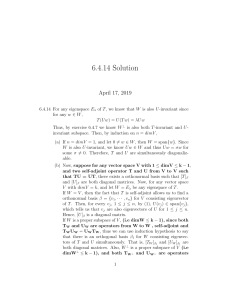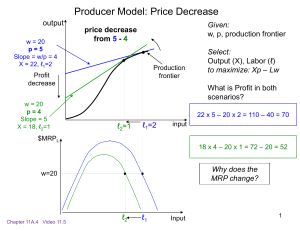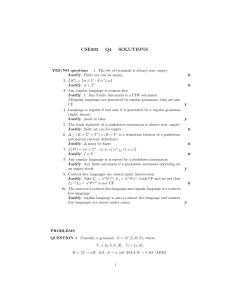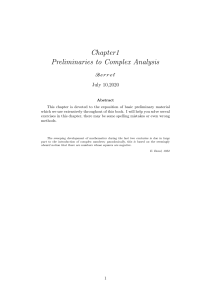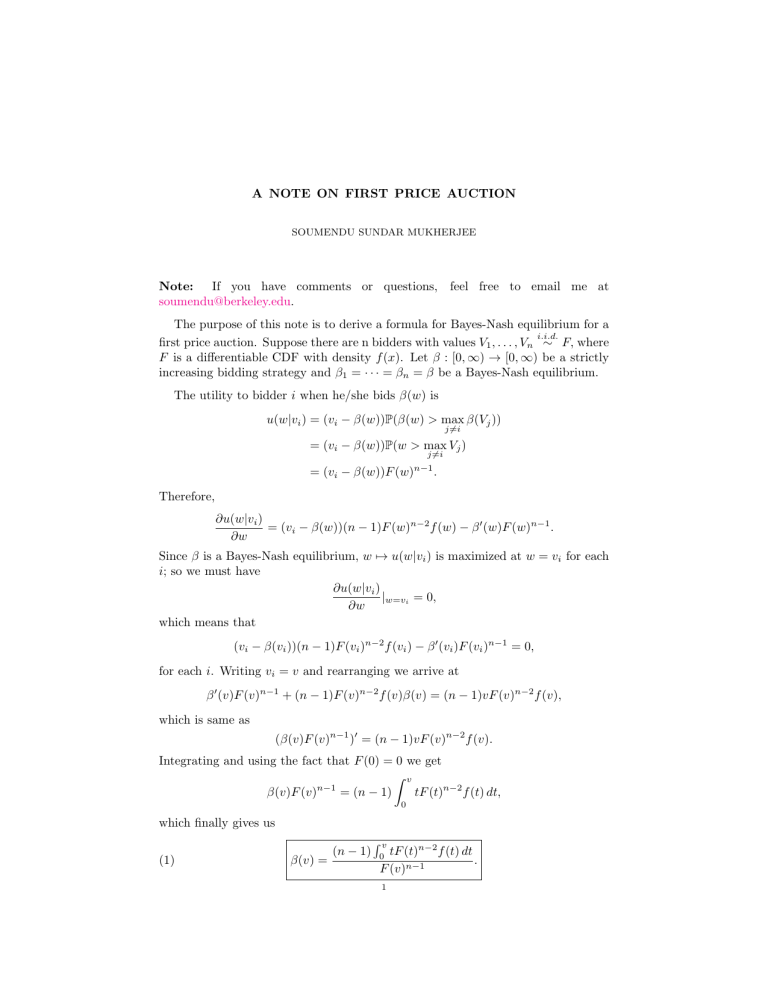
A NOTE ON FIRST PRICE AUCTION SOUMENDU SUNDAR MUKHERJEE Note: If you have comments or questions, feel free to email me at soumendu@berkeley.edu. The purpose of this note is to derive a formula for Bayes-Nash equilibrium for a i.i.d. first price auction. Suppose there are n bidders with values V1 , . . . , Vn ∼ F, where F is a differentiable CDF with density f (x). Let β : [0, ∞) → [0, ∞) be a strictly increasing bidding strategy and β1 = · · · = βn = β be a Bayes-Nash equilibrium. The utility to bidder i when he/she bids β(w) is u(w|vi ) = (vi − β(w))P(β(w) > max β(Vj )) j6=i = (vi − β(w))P(w > max Vj ) j6=i = (vi − β(w))F (w)n−1 . Therefore, ∂u(w|vi ) = (vi − β(w))(n − 1)F (w)n−2 f (w) − β 0 (w)F (w)n−1 . ∂w Since β is a Bayes-Nash equilibrium, w 7→ u(w|vi ) is maximized at w = vi for each i; so we must have ∂u(w|vi ) |w=vi = 0, ∂w which means that (vi − β(vi ))(n − 1)F (vi )n−2 f (vi ) − β 0 (vi )F (vi )n−1 = 0, for each i. Writing vi = v and rearranging we arrive at β 0 (v)F (v)n−1 + (n − 1)F (v)n−2 f (v)β(v) = (n − 1)vF (v)n−2 f (v), which is same as (β(v)F (v)n−1 )0 = (n − 1)vF (v)n−2 f (v). Integrating and using the fact that F (0) = 0 we get Z v β(v)F (v)n−1 = (n − 1) tF (t)n−2 f (t) dt, 0 which finally gives us (1) β(v) = (n − 1) Rv tF (t)n−2 f (t) dt . F (v)n−1 0 1 2 SOUMENDU SUNDAR MUKHERJEE Example. Suppose F is the CDF of Uniform(0, 1). Then using the formula above we get Rv (n − 1) 0 tn−1 dt β(v) = v n−1 n−1 = v. n Recall that we worked out the cases n = 2, 3 previously. This reveals the following interesting fact. For large n, n−1 β(v) = v ≈ v. n This implies that for large n first price auction is approximately truthful. Thus for large n, first and second price auctions are approximately the same. As an exercise you can try to prove that for any n the allocation probabilities for first price and second price auctions are the same, and then by revenue equivalence theorem conclude that the expected revenues are also the same. Exercise. Suppose F is the CDF of Exponential(λ). Find out β using Formula 1.
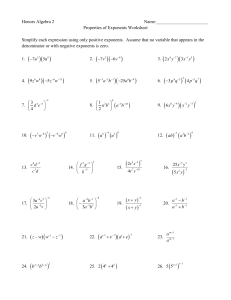
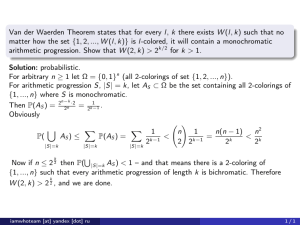
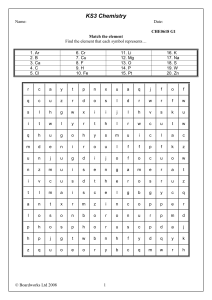
![Ejemplos Física [Física]](http://s2.studylib.net/store/data/027452156_1-93a1711d0b529c33a5f95fd0e2513031-300x300.png)

